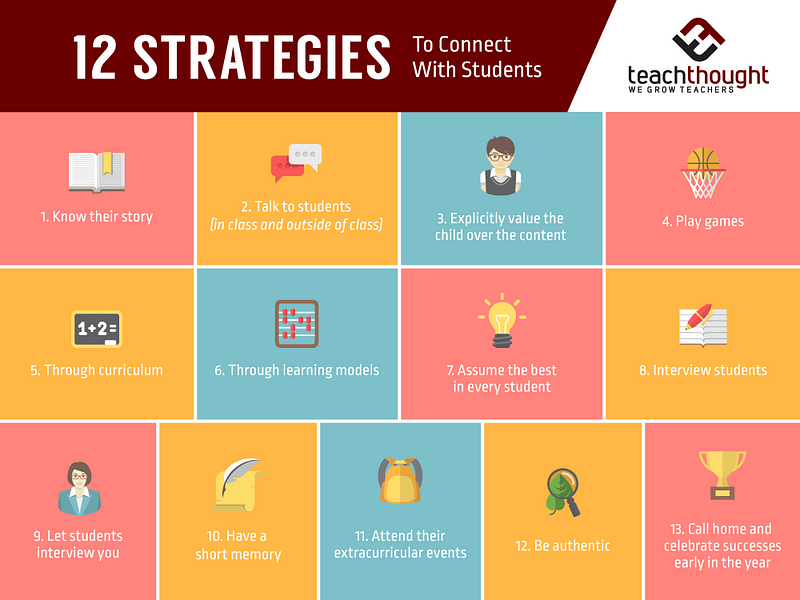Civics Education Should Be a Nationwide Priority: Insights From Educate, 7th Edition
Civics Education Should Be a Nationwide Priority
Insights from Educate., 7th Edition
It has become increasingly evident over the last several years that we are in dire need of revitalizing civics education in the U.S.
The National Council for the Social Studies defines civics education as “the study of how people participate in governing society.” Students must be knowledgeable of the history and principles of our nation with the ability to address complex public problems in a participatory and leadership fashion.
Governor of Florida, Ron DeSantis, is advocating for $106 million to be funded towards additional initiatives in civics education. He is also advocating for a $3,000 bonus for teachers who obtain a “seal of excellence in civics education.” In addition, Governor DeSantis is proposing that all college seniors pass a citizens test before graduating.
Evidence is mounting that explicit civics education is required in schools:
- A 2016 survey found that only 26% of Americans can name all three branches of government.
- A 2018 study found that only 1 in 3 Americans could pass the Citizenship Test.
- A 2019 research team found that only 19% of Americans currently trust the government.
Currently, 9 states and D.C. require one year of civics education. 31 states require a half-year of civics education, and 10 states have no requirement of civics education.
Samantha Mathers at Actions News Jax states:
The fear shared by many education researchers is that students who do not receive an adequate understanding of the structure of government, civic literacy, or their rights and responsibilities as citizens could become adults who fuel existing division and discord.
According to American Progress, the current civics curriculum is weighted heavy on knowledge and memorization of facts but integrates little experiential learning, providing students with the opportunity to act upon their knowledge.
Further, American Progress notes that students score low on the AP US Government exam, with an average score of 2.64 out of 5 (colleges generally require a 3 to earn college credit).
While Florida is looking to become a high-quality civics education leader, it is evident that there is an increased need to include service and experiential learning into the curriculum of all states.
Without added practice and problem-solving, students are lacking key leadership and decision-making skills that will help them become more informed and engaged citizens.
There are ample opportunities to elicit students’ involvement in their own learning and education. Civics education is a practical and relatable course that would further the needs of our country to be problem-solving, knowledgeable, and informed citizens.
Subscribe to Insights from Educate to receive a midweek dose of professional learning and inspiration with the latest news and research from the education industry. Delivered right to your mailbox.
The Latest from Educate.
A History Degree: More Valuable Than You Think by S. H. Salois
Ella Flagg Young — Just One of the Education Leaders We Missed by Ira David Socol
Teachers v Parent by Jessica Camacho
What Will Standardized Testing Look Like in 2021 by Jessica Walsh
Recruit, Train, Retain by Kevin Dougherty
Gaines Over Losses: Change the Narrative on Pandemic Education by Daniel Hicks
 |
Education News and Research
- In “A Year of Remote Teaching: the Good, the Bad, and the Next Steps,” writer Michelle D. Miller, recapped a busy year of steep learning curves for educators, students, and parents. According to Miller, attendance has been good, privacy issues have been largely avoided, and quarantines have been manageable with flexible educational options. Some of the more difficult adjustments include increased cognitive load on instructors, concerns over lost active learning with remote-only options, and a significant rise in access and equity issues. Miller concludes, “New approaches mean risk, after all, and we should all know by now that risk is not equally borne…we have to make sure that all faculty members can access and adopt these teaching innovations.”
- The U.S. Education Department will forgive student loans for those defrauded by their institutions in a move sharply contrasting former Secretary of Education Betsy DeVos’ stance on the matter. Current Secretary of Education, Miguel Cardona, reassured individuals affected by institutional malpractice by stating: “borrowers deserve a simplified and fair path to relief when they have been harmed by their institution’s misconduct.” Estimates reflect 72,000 borrowers will receive relief, totaling approximately $1 billion.
- Hip-hop Professor A.D. Carson will release the world’s first peer-reviewed rap album. Carson published his album with the University of Michigan Press to expose and share the distinct form of hip-hop scholarship. The peer-review process included creating sets of questions that apply sonically rather than to written work. Carson states, “at some point society should be able to both focus on the potency of the lens of hip-hop and also concentrate on what hip-hop brings into view.”
Professional Learning and Inspiration
12 Strategies to Build Relationships with Students
 |
Harvard’s Education Podcast: Disrupting Whiteness in the Classroom
Assistant Professor Bree Picower discusses the systemic racism that exists in our schools. In particular, she examines how the current curriculum reflects white supremacy and offers key takeaways for educators to disrupt racism in classrooms. Ideas for educators include finding an ally to collaborate with, closely examine lesson plans for possible racist slants, and network with teachers who are teaching anti-racism in classrooms.
If we just tweak the curriculum, that teacher’s going to figure out another way to teach dominant racial ideology. What we really need to do is help people examine their deep-seated beliefs about race, and that will do more than treating it as a curriculum or a content issue.
Yes, Student Reviews of Classroom Teaching Have Value by Sharon Block, Inside Higher Ed
Student evaluations of teaching can improve the quality of educational courses. By eliciting student feedback, we are involving them directly in the learning process while also teaching them the meaning and use of constructive feedback. If instructors are able to use this feedback in the form of reflective portfolios, then they can offer evidence as to classroom effectiveness and further grow their teaching practice.
I am concerned that the effort to eliminate student evaluations as part of review processes mutes the voices of the lowest-status and often most ethnically and racially diverse members of our academic communities.
Getting More Than “Entertainment” by Lee Ann Jung, ASCD
Jung offers an important perspective on professional learning. While engaging and fun presenters make the sessions more palatable, it is equally important for professional development to be content- and purpose-focused. Jung poses a series of questions to reflect upon when choosing professional learning presenters such as: What’s the purpose? What are trying to accomplish this year? Can we provide learning in-house on this subject? How will we differentiate for learners?
To make PD stick, we have to see professional learning as the much broader context within which any PD day or session fits. And for any of our initiatives, we need to make careful, outcome-focused decisions on the methods and people we select for both internal and external support. Otherwise, we may as well pop some popcorn and show an award-winning movie for our back-to-school PD day.
 |
Follow Educate.
Subscribe to Insights from Educate to receive a midweek dose of professional learning and inspiration with the latest news and research from the education industry. Delivered right to your mailbox.
Write for Educate.
We would love to share your voice. Educate features research-driven articles focused on the education industry. Please review the submission requirements:
Write for Educate.
How to Write a Research-Driven Article
Send questions to educate@jenniferosbornewrites.com
About the Editor
Jennifer Osborne is an experienced educator with graduate degrees in Educational Leadership and Guidance and Counseling. She has taught in five countries across a wide variety of classrooms and schools. Jennifer is passionate about authentic education for students and personalized professional learning for teachers.
Read her Educator’s Bio at Jennifer Osborne Writes.
Jennifer Osborne Writes
Halting Teaching Fads Means Changing Traditional Education Insights from Educate,10th Edition The EdSurge Podcast asks: “Why Is Teaching So Prone to Fads?” Before I even dived in (or listened in), I was already nodding my head in agreement. Teaching is prone to fads. I would even dare say it is overly prone to fads. With a decade of teaching under my belt, I have certainly felt the cyclical winds of education blow through. Although there are some mainstays, such as backward unit planning...
Is Education More Like a Garden, Prison, Factory, or Job? Insights from Educate., 9th Edition Julia Brodsky, a contributor to Forbes, poses an interesting question in her article, “How Metaphors Shape Our Ideas About Education.” Brodsky interviews experienced educator and writer, Julia Turchaninova, exploring the most common metaphors that are used to describe the complicated system that is education. Turchaninova states, “metaphors help us visualize and convey our mental models (the...
It's Time to Embrace Technology as the Future of Education Insights from Educate., 8th Edition Emily Wade on Unsplash Schools are beginning to re-open after a year of navigating a challenging educational landscape. Researchers, administrators, policymakers, and educators are wondering how this past year has changed the future of education. Will schools embrace hybrid learning and 1:1 device access going forward? Having taught at international schools for most of my career, I have been...

